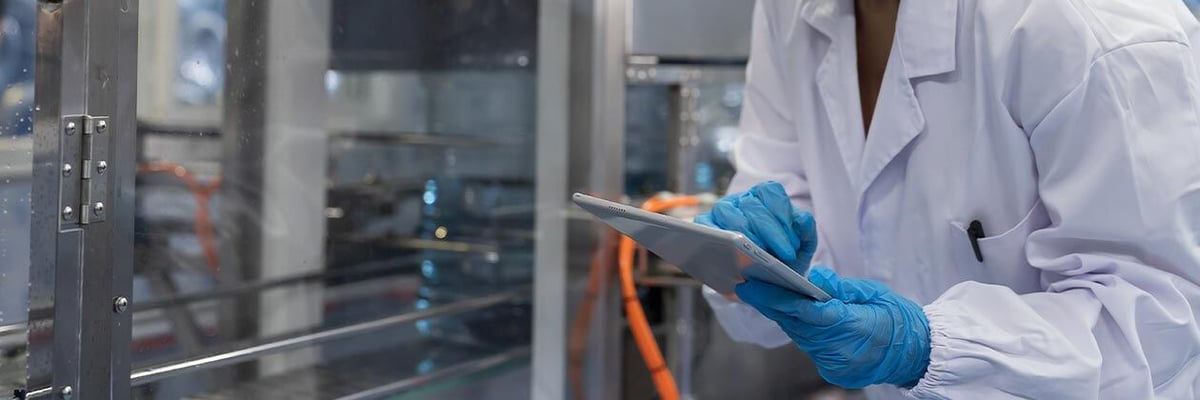Author: Ben Hartman | December 4, 2024 | 4 Min Read
5 Key Things to Know About Food Safety Recalls

The past year has seen countless headlines about food safety recalls and food contamination outbreaks - including at some companies that are household names across the country.
In the special Rootwurks webinar, “Recall Mania - the Truth Behind the Headlines,” Andrea Griffiths, Retail and Supplier Audit Program Manager for Rootwurks partner ASI, spoke about the recent headlines and the steps food companies can take to be proactive and reduce the odds of facing a recall.
Here are some of the main takeaways:
1. Consumer tastes have changed
In recent years, consumer tastes have become steadily more sophisticated and complex - and the food industry has responded accordingly. Today’s consumers have access to products made with longer supply chains and more fresh ingredients than ever before.
But as tastes have changed, so have the challenges.
“It’s made it a little more difficult for the FDA (U.S. Food and Drug Administration) to oversee it and there are so many components for importing fresh items,” Griffiths said, adding that “we absolutely have to keep up with consumer demands and that changes the food safety portion of it.”
2. The COVID-19 Pandemic has played a role
For many consumers, the COVID-19 pandemic may seem to be far back in the rearview, a major life-changing event that we have largely been able to move on from.
According to Griffiths, the pandemic also left an impact on food safety - and not entirely positive.
“There were a lot more remote audits. Now, we can look at the documentation. But as you can imagine, when we go into a facility, we can see what’s going on right there.”
On a more positive note, she said the outbreak led many food companies to implement better manufacturing practices, including better personal hygiene measures and ensuring sick employees stay home from work.
3. Food safety culture is critical
Good manufacturing practices are crucial, but creating a food safety culture in which you do things the right way, every day - including when no one is watching - is paramount.
“Food safety culture is paramount, right next to training. It starts from senior management down,” Griffiths said.
Food safety culture means not waiting for an audit or an inspection to do things the right way, and making sure that every employee is empowered to play their part.
“It means that employees feel encouraged and empowered to be able to say something. That comes from senior management down,” Griffiths said.
She added that “we can do all the training in the world, but if people cut corners, it's going to fail."
4. Recordkeeping can't be overlooked
A key component in food safety culture - and recall prevention - is recordkeeping.
Having comprehensive records means you will be able to track your operations and mitigate potential damage in case of recalls. It also means you can prove that you are performing the steps necessary to prevent a recall.
“We want to make sure that we're backing up all of our records. We're keeping records as long as we need to and in the event that there is a recall or something happens, we're able to pull those up,” Griffiths said.
She said she explains recordkeeping to companies as “fill everything out, don't leave anything empty.”
Griffiths said that well-kept documents are ones in which if you weren’t there to explain the documents to someone, they would still be able to read and understand them on their own
5. When in Doubt - Turn to the Experts
Food safety is complicated and the stakes are very high. The good news is you don’t have to do it alone.
Certification bodies like ASI help companies meet the requirements of a wide variety of industry standards that can be difficult to navigate on their own. They can also audit facilities for safety and compliance, to help them find where and how to implement best practices which can be key to preventing a recall.
“A good certification body is going to be able to walk you through it and some of them are all-encompassing - from farm to fork.”
Griffiths said that a good certification body will walk a company through that process and help with certification and that industry professionals “are sometimes afraid to ask questions or not know the answer to something.”
These certification bodies will assess a company’s needs, ask what measures they have already implemented, and what systems they have in place, and will make recommendations accordingly.
The bottom line - no company has to feel that they have to handle all these requirements on their own.
If you'd like to watch "Recall Mania - the Truth Behind the Headlines," you can catch it on-demand here on the Rootwurks website.
To learn more about the food safety consultation services offered by ASI, visit the company website.
Contributors

Ben Hartman
From HACCP certification to the basics of hygiene, our on-demand courseware has you covered.


.jpg?width=1200&height=628&name=Linkedin%20(29).jpg)








